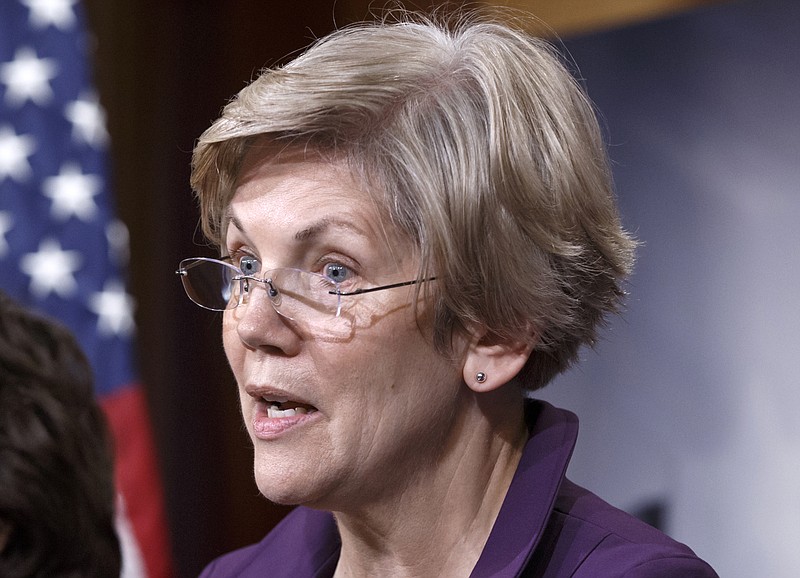What about vetoes?
* President George Washington made the first veto to strike down the Congressional Appointment Act of 1792. * President Grover Cleveland issued the second most vetoes in history: 414 in his first administration. * President Franklin D. Roosevelt, through four terms and the New Deal, issued 635 vetoes -- more than any other president in history. * Modern presidents have exercised veto power less: President Ronald Reagan vetoed 78 bills. * President Bill Clinton vetoed 37 measures. * President George W. Bush vetoed just 12 bills. * So far, President Obama has used his veto pen two times, less than any executive in more than a century. Source: www.senate.gov
Sen. Elizabeth Warren is on a mission, and on the very first day of the new Congress last week she scolded her Senate colleagues for fast-tracking the Keystone pipeline and offered some plain talk for Americans who have not been able to get the straight dope on what really should be called the pipeline to money and power.
"My question is simple," she said. "I want to know why the pipeline is the very first No. 1 item on the agenda in this new Congress?"
Is it about jobs? she asked. Then she answers: While the jobs number is often disputed, most estimates put the number at a few thousand or less. Why not focus on a permanent highway bill instead, and thereby raise the potential jobs number to over 8 million in the next four years and fix crumbling roads and bridges?
Is the pipeline urgency about lowering America's energy cost? Clearly not, since even supporters of the pipeline agree that the great majority of the oil that would be carried from the Canada tar sands through the heartland of America (and over our largest and most precious fresh-water aquifer) would be exported for use outside the U.S.
The answer to the urgency question is simply "power and money," Warren said. "Since 2009, TransCanada (a giant foreign oil company) has spent almost $7 million in lobby expenses related to Keystone." She said analysts jokingly refer to the Keystone bill as the "Lobbyist Support Act."
"And now TransCanada wants what they paid for," Warren told her colleagues. "Who does this new Republican Congress work for? Foreign oil or the American people?"
In closing, she said, "I didn't come here to do favors for Trans-Canada. ... I'll be voting no on this bill."
Of course, Congress didn't listen. Ultimately the energy committee last Thursday approved the measure on a vote of 13 to 9, moving it closer to a vote in the full Senate. It already had passed the House of Representatives 266-153. Never mind that once the two-year construction is finished, the pipeline will provide no more than 50 permanent positions once it becomes operational.
After a Friday Nebraska Supreme Court decision to throw out a state law that had effectively been preventing the pipeline from crossing that state, now a presidential veto remains the best hope to stop the project. The administration has said President Obama intends to veto the legislation should it reach his desk before a State Department study on the issue is completed.
And on Sunday, Sen. John Hoeven, a Republican from North Dakota who sponsored the legislation, said the Senate still needed four votes to pass veto-proof legislation. Congress can only overturn a presidential veto with a two-third's majority in both the House and Senate.
The Senate is expected to vote on the pipeline this week.
Let's hope some of our lawmakers in that far-too-heavily lobbied group were listening to Sen. Warren.
